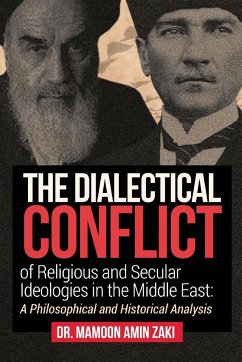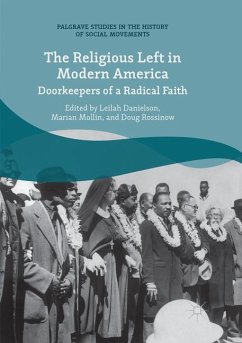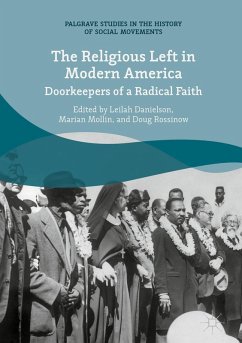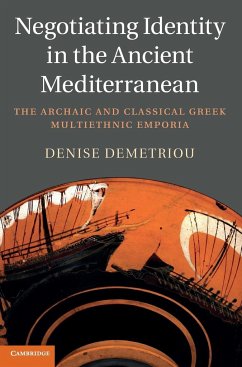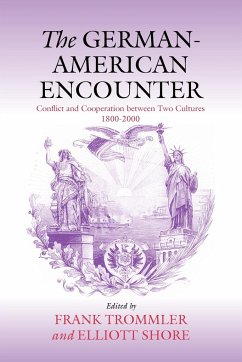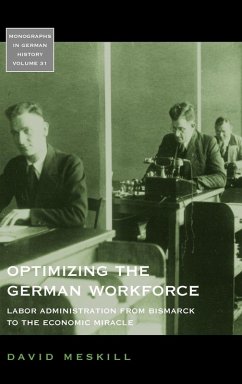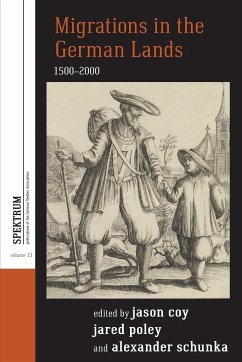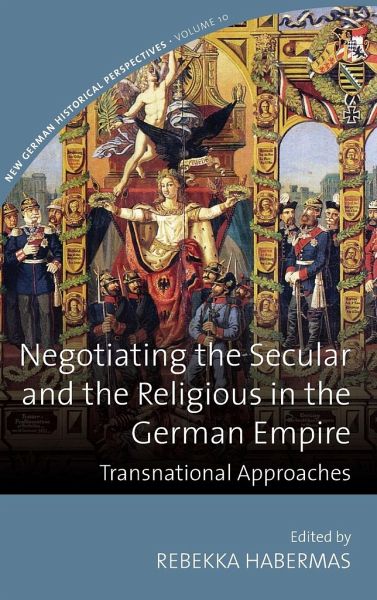
Negotiating the Secular and the Religious in the German Empire
Transnational Approaches
Herausgeber: Habermas, Rebekka

PAYBACK Punkte
66 °P sammeln!
With its rapid industrialization, modernization, and gradual democratization, Imperial Germany has typically been understood in secular terms. However, religion and religious actors actually played crucial roles in the history of the Kaiserreich, a fact that becomes particularly evident when viewed through a transnational lens. In this volume, leading scholars of sociology, religious studies, and history study the interplay of secular and religious worldviews beyond the simple interrelation of practices and ideas. By exploring secular perspectives, belief systems, and rituals in a transnationa...
With its rapid industrialization, modernization, and gradual democratization, Imperial Germany has typically been understood in secular terms. However, religion and religious actors actually played crucial roles in the history of the Kaiserreich, a fact that becomes particularly evident when viewed through a transnational lens. In this volume, leading scholars of sociology, religious studies, and history study the interplay of secular and religious worldviews beyond the simple interrelation of practices and ideas. By exploring secular perspectives, belief systems, and rituals in a transnational context, they provide new ways of understanding how the borders between Imperial Germany's secular and religious spheres were continually made and remade.




